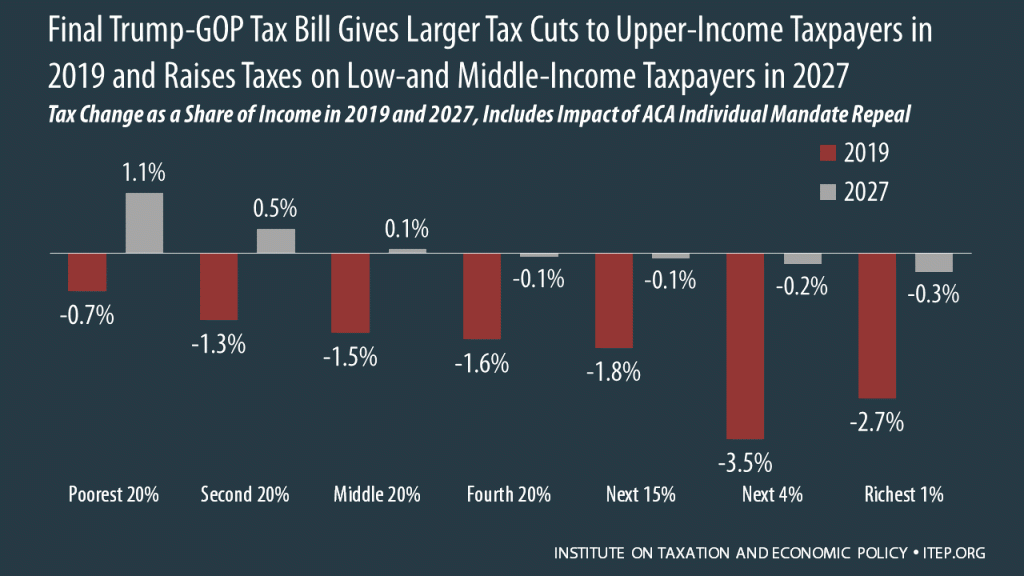If there was one thing that tax reform legislation was supposed to accomplish, it was to put an end to the scandalous semiannual ritual of extending and expanding the list of the temporary provisions in the tax code, known as tax extenders. During the passage of the last tax extenders bill at the end of December 2015, lawmakers on both sides of the aisle agreed that it was critical to have a tax code that provides “permanency and certainty” and to move forward with comprehensive tax reform that would decide the fate of the extenders once and for all. Unfortunately, the Tax Cuts and Jobs Act not only failed to eliminate the tax extenders, it significantly expanded the number of temporary provisions in the code.
On Thursday night, Congress passed $17.4 billion in additional tax cuts as part of a larger deal to fund the government over the next two years. These tax cuts include one-year retroactive extensions of dozens of tax extenders, including many cringeworthy special interest provisions, such as a tax breaks for owners of racehorses and motorsports racetracks. While the case for the economic efficacy of many of these tax breaks has always been weak, the case for extending them now is nonexistent since these provisions were not in effect throughout 2017 and therefore their retroactive extension could not have had any impact on the incentives of their users.
The one-year extension of these provisions comes on top of another $31.3 billion in temporary tax cuts passed as part of the continuing resolution deal on Jan. 22. This legislation temporarily suspended the implementation of the medical device tax, the tax on high-cost health insurance, and the annual fee on health insurance companies.
One might be forgiven for thinking that the passage of $1.5 trillion in tax cuts would mean that Congress would take a hiatus from passing additional tax cuts and would dispense with its tradition of extending temporary tax provisions. With its latest two budget deals, Congress has proven that the era of passing billions in temporary special interest tax cuts without paying for them is still going strong.
Making matters worse, the Tax Cuts and Jobs Act is riddled with new phase-ins, phase-outs, and temporary provisions. As far as individuals are concerned, the Trump-GOP law turns the entire tax code into a tax extender since virtually all of the individual code it expires after 2025. A recent publication by the Joint Committee on Taxation lists nearly 100 temporary provisions created or left in place by the Tax Cuts and Jobs Act.
All these temporary provisions virtually guarantee that Congress will be occupied with armies of special interest lobbyists who will continue to push lawmakers to keep their special breaks in place. Congress should reject these appeals and move quickly to implement true tax reform that increases revenue, fairness and leaves the special interests behind.





